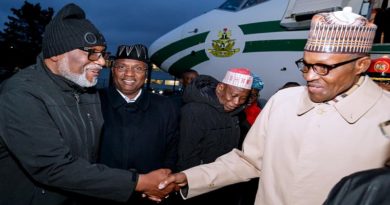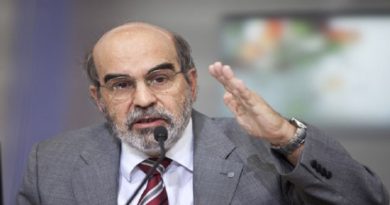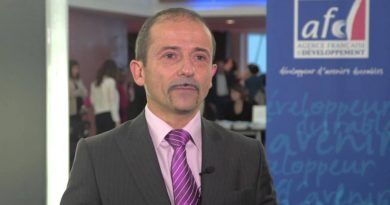SDGs: UN-Habitat, partners discuss ways to improve security of tenure for women
The United Nations Human Settlement Programme (UN-Habitat), on the sidelines of the ongoing commission on the Status of Women (CSW) and some of its partners held on fruitful discussion on practical tools for improving security of tenure for rural women and girls.
Participating partners included the Republic of Zambia, the Global Land Tool Network (GLTN), Landesa, the Huariou Commission and UN-Women, UN-Habitat. The main themes discussed at the lively discussion were the importance of accounting for both formal and informal tenure, how security of tenure for girls and women is paramount to deliver the SDGs, and the best practices and practical tools for claiming land rights and improving policies for increased security of tenure for women and girls.
The Sustainable Development Goals (SDGs) and the New Urban Agenda (NUA) stress that land and tenure security are not just important outcomes of sustainable inclusive development – they are key drivers for its realization. Women account for 50% of farmers worldwide, but only represent 13% of land holders. Moreover, of 161 countries, only 37% guarantee equal rights to women and men to use and transfer land. Security of land tenure is not only a gender empowerment issue – it is embedded in the achievement of SDGs in the 2030 Agenda. The 2030 Agenda locates land as essential to poverty reduction and gender equality, as a general means to achieve sustainable development.
Moderator Chris Williams, UN-Habitat New York Liaison Office Director, began the discussion by noting that there are multiple forms of tenure that women do and do not possess that are reflective of religious, cultural and social formations outside of legal land tenure system.
The Zambian Minister for Community Development, Emmerine Kabanshi, emphasized the need to prioritise secure land rights for rural women at national and local levels. “This is particularly important in Zambia where customary land tenure in Zambia accounts for 94% of all land, whereas only 6% is held formally by a leaseholder or state,” she said.
Presentation from the UN Women DED, Mr. Glemarec, focused on the cross-cutting nature of gender empowerment in the 2030 Agenda. Integrated projects undertaken by the GLTN to secure women’s tenure can simultaneously foster sustainable development. He elaborated: without secure land tenure, there are few incentives to invest in long term land management, technological investment, or investment in resilience to climate change”, adding that “to overcome barriers, partners must ensure that land tools are not overly specific, but instead apply to all land tenures and geographies.”
Grassroots women shared their experiences and challenges to securing their own legal tenure. They cited factors such as legal restraints, lack of information, cultural and traditional rules and inheritance laws. Ms. Violet Shivytse, the Chair Huairou Commission, noted the importance of “collecting testimonies, physical mapping and documenting land in order to reposition women as key stakeholders and land owners”.
The expert from Landesa, Ms Justine Uvus, shared practical tools for claiming land rights, and developing improved policies and legislation towards improving security of tenure for women and girls. They emphasised the need for national and local authorities to work together, and to work with communities and the private sector to ensure that rural women can improve their tenure and fulfil their potential. Chief Wycliffe Kombo shared the effective practice of including “Model Groups” – a sort of watchdog that acts as an alternative dispute settlement mechanism to provide binding, local, and real solutions. UN-Habitat’s land expert Ms Everlyne Nairesiae, highlighted the specific SDG indicators that will help measure and monitor women access to land and secure tenure for all women and girls.
UN-Habitat Deputy Executive Director Aisa Kacyira Kirabo closed the discussion in noting that this platform of discussion had presented such rich discussion that the participants and leaders could agree to bring a “smaller CSW back to our communities to involve everyone in the process of localizing the SDGs”. Finally, Ms. Uvuza powerfully iterated the importance of this project and discussion in stating, “my land is my livelihood, my land is my food, my land is my ownership”.




